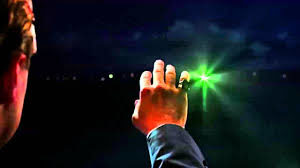Humans have a tendency, a will unlike any other creature, to constantly strive towards improving our life and making a better future for ourselves and the next generations. An example of this is the quintessential “American Dream,” an idea that is deeply explored in F. Scott Fitzgerald’s novel The Great Gatsby. Gatsby is always chasing this “American Dream” and Nick’s final comment about Gatsby expresses Gatsby’s chase and the human nature that presents itself in Gatsby’s quest for a better future.
 The first part of Nick’s final observation is a specific reference to Gatsby’s “American Dream.” Early in the novel Nick sees Gatsby staring at a “green light” and reaching out for it. Throughout the story we learn that the “green light” is the light on Daisy Buchanan’s dock. We also learn that Gatsby’s dream is to finally be worthy of Daisy’s love and win her over. When Nick says that “Gatsby believed in the green light” he means that Gatsby believes that we can achieve our dream future and that it is eating for us, we just have to work to get it. Nick continues by qualifying the “green light” as the “orgastic future that year by year recedes before us.” This is again showing that Gatsby believed that we can build and work in order to realize our wildest dreams. However, Nick starts to both stray away from Gatsby specifically and point out how difficult and/or impossible it is to achieve that end game. The fact that he describes the dream as “reced[ing] before us” serves to demonstrate the fact that this better future may be an illusion or figment of our imagination. It seems as if he is asking that if we are always chasing and it still gets further, is it ever attainable?
The first part of Nick’s final observation is a specific reference to Gatsby’s “American Dream.” Early in the novel Nick sees Gatsby staring at a “green light” and reaching out for it. Throughout the story we learn that the “green light” is the light on Daisy Buchanan’s dock. We also learn that Gatsby’s dream is to finally be worthy of Daisy’s love and win her over. When Nick says that “Gatsby believed in the green light” he means that Gatsby believes that we can achieve our dream future and that it is eating for us, we just have to work to get it. Nick continues by qualifying the “green light” as the “orgastic future that year by year recedes before us.” This is again showing that Gatsby believed that we can build and work in order to realize our wildest dreams. However, Nick starts to both stray away from Gatsby specifically and point out how difficult and/or impossible it is to achieve that end game. The fact that he describes the dream as “reced[ing] before us” serves to demonstrate the fact that this better future may be an illusion or figment of our imagination. It seems as if he is asking that if we are always chasing and it still gets further, is it ever attainable?
Even though Nick hints that the future we are seeking may never get closer, but actually get further away, he realizes that humans will never stop chasing it. Our human nature is to ‘run faster’ and ‘stretch out are arms farther’ in pursuit of our desires. Nick acknowledges that we will never be satisfied until we get what we want. Mankind will work tirelessly and with ever increasing intensity in order to achieve our goals. His final words liken our endless struggle towards a better future to a boat beating on against the current. He ends by saying how the current bears us ‘back ceaselessly into our past.’ This is suggesting that the current, our dreams, will go against us and metaphorically transport us back in time to when we first came up with these dreams and to how we felt in those moments. This is certainly true for Gatsby. As he does everything he can to win Daisy from Tom, he becomes increasingly obsessed with redoing the past. He wants so desperately for his better future to a re-run of how he felt when Daisy became the true object of his dream to move up in the world.
Nick’s final words in the story reveal the tireless nature in which Gatsby and mankind work to achieve dreams of a better version of life. When we as humans discover or come up with an idea of a better version of ourselves, we will do everything in our power and give maximal effort until we no longer physically can, or we achieve it. Despite this, the illusion of the better future that is in our heads is not always attainable and can lead to a negative result in which we lose sight of the present and are stuck in a past vision.

In this in-class essay analyzing the final words in the novel and their relation and significance to the American Dream, I tried to connect the novel’s representation of the American Dream and Gatsby’s journey to human nature as a whole and explore any universal truths that their might be. I think I was slightly repetitive but still was able to talk about some interesting ideas.